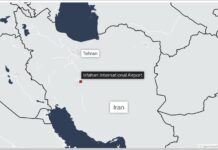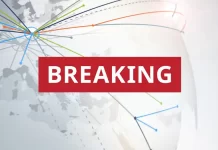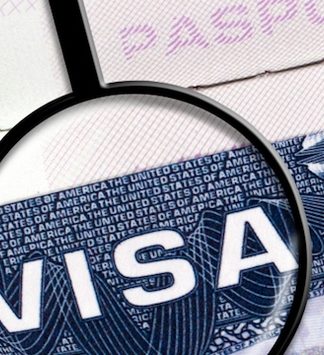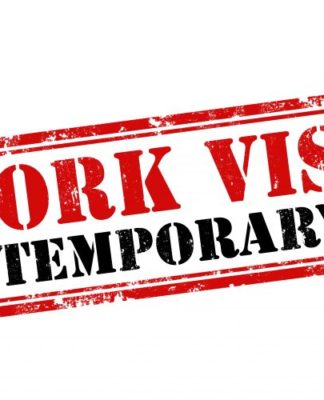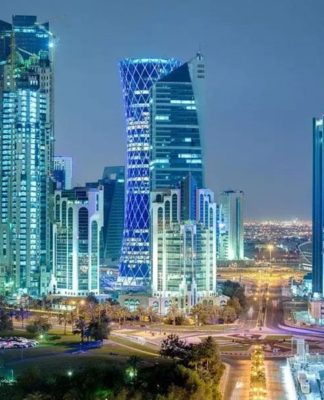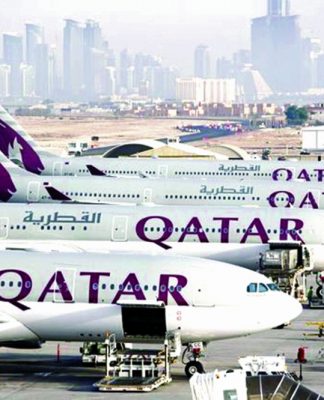For Lion Air crash relatives, Boeing comeback stirs raw memories
Indonesian authorities’ decision to lift ban on Boeing 737 Max follows similar moves around the world.
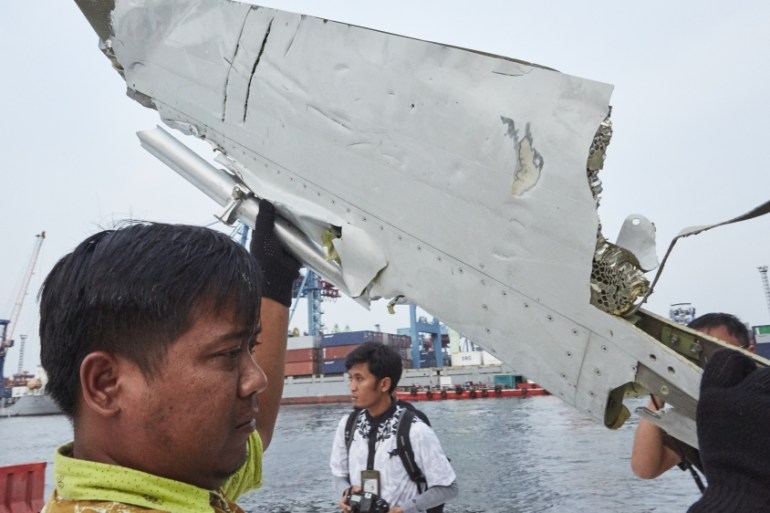
Medan, Indonesia – When Indonesia announced the Boeing 737 Max would be allowed to fly in its airspace after a nearly three-year ban, Anton Sahadi’s memories of Lion Air Flight 610 came flooding back.
“I was a little surprised when I heard the ban had been lifted,” Anton Sahadi, whose wife lost her two 24-year-old cousins when the aircraft plummeted into the Java Sea on 29 October 2018, told Al Jazeera.
KEEP READING
list of 4 items
‘Huge safety issue’: Hong Kong pilots’ warning over COVID rules
China says stable economy ‘crucial’ political issue in 2022
Singapore’s economy grows at fastest pace since 2010
What lies ahead for the global economy in 2022?
end of list
“I don’t see why it had to happen so soon when we are still grieving.”
Indonesia’s transport ministry cleared the Boeing 737 Max to fly late last month, following an extensive review of the aircraft and a series of suggested improvements by the Indonesian National Transportation Safety Committee.
The Lion Air crash, which killed all 189 people on board, and the Ethiopian Airlines crash less than five months later grounded 737 Max planes around the world and sent Boeing’s share price plummeting. Indonesia was one of the last countries to clear the aircraft to fly again following the lifting of bans in the United States, China, India, Europe, Malaysia, Singapore, Japan and Australia.
Sahadi learned there was a problem with Lion Air Flight 610 from a line of running text along the bottom of a programme he was watching on Indonesian television on October 29, 2018.
There was breaking news: Flight 610 had lost contact with air traffic control just 13 minutes into its flight from Jakarta to the city of Pangkal Pinang in the Bangka-Belitung Islands.
“My wife was in Mecca in Saudi Arabia at the time and she was the one who told me that her cousins Riyan Aryandi and Ravi Andrian had been on a plane at the same time bound for the same destination,” Sahadi said, describing how he drove in a blind panic to Jakarta’s Soekarno Hatta Airport International Airport, breaking the speed limit and arriving in record time.
“At some point, I saw a copy of the manifest and I knew it was true that they were on the plane.”
 Anton Sahadi is among those concerned about the return of the Boeing 737 MAX to Indonesia’s skies [Courtesy of Anton Sahadi]
Anton Sahadi is among those concerned about the return of the Boeing 737 MAX to Indonesia’s skies [Courtesy of Anton Sahadi]The cause of the accident remained unclear until Ethiopian Airlines Flight 302 crashed en route to Kenya from Addis Ababa on March 10 2019, killing all 157 people on board. Flight 302 had also been a 737 Max.
The Lion Air crash report published almost a year after the accident pointed the finger of blame squarely at the design of the aircraft.
“After our investigation, we found that there were several weaknesses that needed to be fixed, particularly with the MCAS,” Surjanto, the head of the Indonesian National Transportation Safety Committee (NTSC), told Al Jazeera.
MCAS, or the Maneuvering Characteristics Augmentation System, is a flight stabilising programme implemented on the newer models of the Boeing 737 Max.
“If a plane was going into a stall, the system would automatically prevent the stall from occurring,” said Surjanto. “The aim of the system was good but its weakness was that it didn’t clearly communicate to the pilots what was happening and this caused confusion.”
On Lion Air Flight 610, a sensor on the outside of the plane indicated, incorrectly, that the nose of the plane was too high and that the aircraft was at risk of stalling. This caused the MCAS to engage and force the nose of the plane down to avoid a potential stall.
Unsure as to what was happening, the pilots fumbled with the plane’s manual for a way to right the trajectory of the aircraft before it plummeted into the Java Sea.
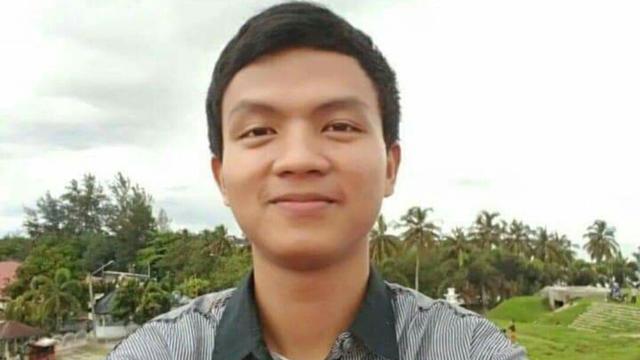 Ravi Andrian is among the 189 people who lost their lives on Lion Air Flight 610 [Courtesy of Anton Sahadi]
Ravi Andrian is among the 189 people who lost their lives on Lion Air Flight 610 [Courtesy of Anton Sahadi]Sujanto, the NTSC head, said clearing an aircraft to fly again after an accident involved rigorous checks and procedures.
“There have been a range of upgrades to both the flight software and pilot training to ensure that the maximum has been done to make sure the 737 Max planes are safe,” he said.
Ethiopian Airlines has announced that it will lift its own ban in February 2022.
A Boeing spokesperson told Al Jazeera that Indonesia’s decision marked an “important milestone towards safely returning the 737 MAX to service in Indonesia.”
“Boeing continues to work with regulators and our customers to return the airplane to service worldwide.”
The aircraft manufacturer states on its website that the MCAS has been updated so that it “operates in unusual flight conditions only and now relies on two sensors, activates only once and never overrides pilots’ ability to control the airplane.”
‘Sceptical or afraid’
It is not yet clear how Indonesian customers will react to the return of the aircraft, which also depends on airlines carrying out government-ordered airworthiness directives.
“Even if the 737 Max has been deemed safe, it is likely that there will still be members of the public who are sceptical or afraid,” Gerry Soejatman, an aviation expert in Jakarta, told Al Jazeera.
Before the ban, Indonesia’s national carrier Garuda operated a single 737 Max plane, but has already indicated that it does not intend to bring it back into use following a debt-restructuring exercise that will trim its current fleet from 142 to 66 planes.
Lion Air operates 10 737 Max planes which, according to Soejatman, leaves the group with little option but to either continue flying or jettison the entire fleet.
“It will take time, either time for people to stop being afraid, or time for the plane to be returned to the lessor,” he said.
For family members of the victims, like Sahadi, doubts persist. While Ravi’s body was identified following the crash, Riyan’s remains have never been found.
“That was hard. We couldn’t bury him,” said Sahadi. “I hope that the government has verified everything carefully and put all the proper procedures in place first.”
“I hope they are not going to risk lives for the sake of business.”





